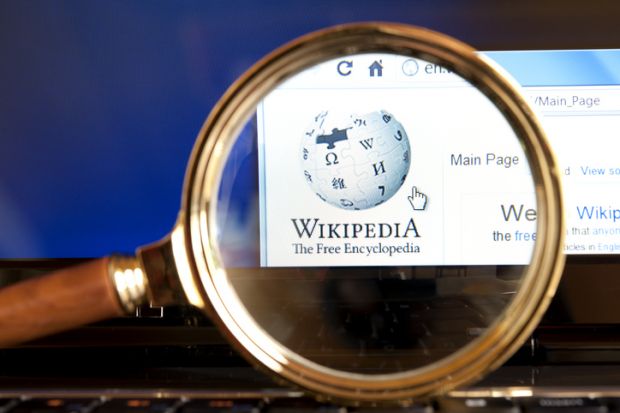Wikipedia could prove an invaluable source in charting the output of scientific knowledge as it diffuses into the public discourse, argue the authors of new research.
Rona Aviram and Omer Benjakob, whose findings were published on 13 September in the journal Plos One, combed over thousands of iterations of articles in the online encyclopaedia related to the gene-editing technology CRISPR, which served as a case study into how scientific findings influence Wikipedia entries.
Dr Aviram, a researcher at the Paris-based Center for Research and Interdisciplinarity (CRI) and at the Technion Israel Institute of Technology in Haifa, and Mr Benjakob, a CRI fellow and investigative journalist, found that science played a significant role in how Wikipedia articles changed over time.
The evolution of Wikipedia articles – how users tweak text, removing older phrasing and links even as they add new ones – is a largely untapped resource for researchers to document the “incremental growth of knowledge” and ways in which scientific knowledge “accumulates and translates into public discourse”, they say.
While there exists a body of research evaluating which citations make it into Wikipedia, the researchers say the method used in their study goes deeper, looking at how the text itself changes over time.
“Imagine we could see a scientist’s revisions on their papers. That would be the equivalent of what we’re doing,” said Mr Benjakob, likening the technique to an “MRI of the scientific consensus” – a cross-section of knowledge in the way that magnetic resonance imaging scans show a detailed picture of internal organs.
In being able to track the same text over time down to the sentence level, Wikipedia offered “something different” from traditional ways of benchmarking science, Dr Aviram added.
In the years since she presented the researchers’ first case study using Wikipedia in 2018, academic attitudes on using the site as a tool had changed, she said.
Dr Aviram said: “I got up on stage and my first sentence was ‘I have a confession to make: I use Wikipedia’, and this was a sort of taboo. Half of people would be like ‘yeah, we don’t do that here, no’.”
But even if academics had warmed to the tool, technical issues still proved a sizeable hurdle. For instance, Wikipedia footnotes were often not properly formatted, making them difficult to scrape for data, she noted.
The study, the researchers say, only scratches the surface of the site’s offerings because it was limited to English-language content; it did not take into account Wikipedia’s “talk page”, which facilitates debate between users or the wealth of visual imagery made public via its sister site, WikiCommons.
Dr Aviram said she was keen to extend a hand to other researchers in the field – and confident there would be takers. “I want to get the message out there: we are looking for collaborators and to share our tools,” she said. “This could have a very big impact on research.”
Register to continue
Why register?
- Registration is free and only takes a moment
- Once registered, you can read 3 articles a month
- Sign up for our newsletter
Subscribe
Or subscribe for unlimited access to:
- Unlimited access to news, views, insights & reviews
- Digital editions
- Digital access to THE’s university and college rankings analysis
Already registered or a current subscriber? Login








